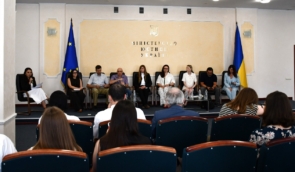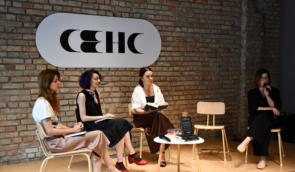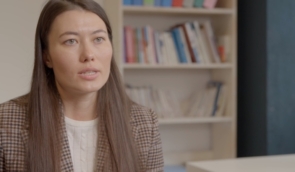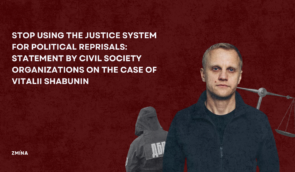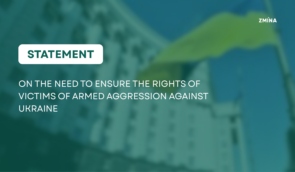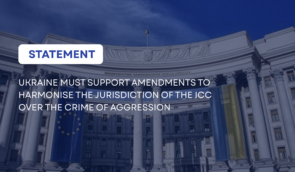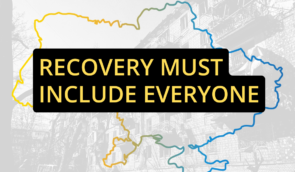Activists in Ukraine are attacked more often, and LGBT activism has become the most risky, human rights defenders say
In the first half of 2021, there were 53 cases of persecution of activists which were recorded by the ZMINA Human Rights Centre in the government-controlled territory of Ukraine. 21 of these cases happened in the second quarter of the year.
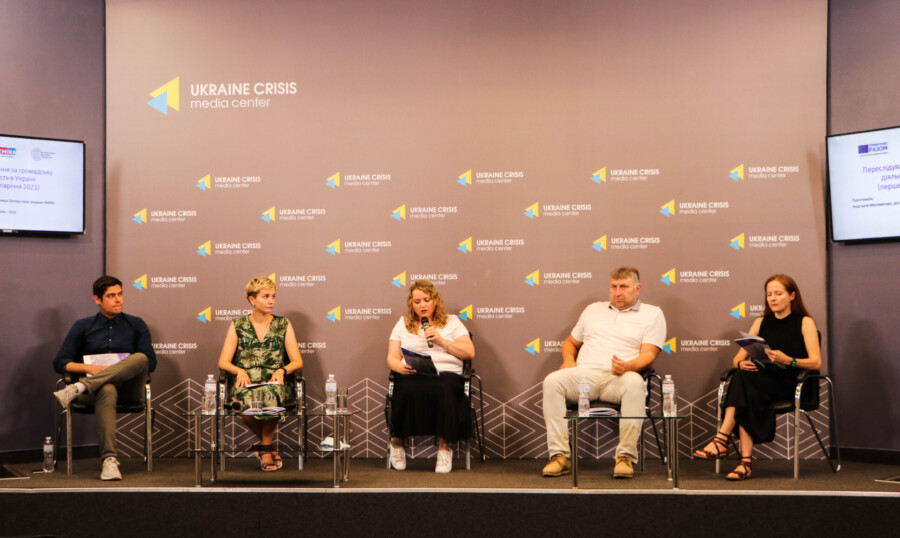
ZMINA researcher Anastasia Moskvychova notes that this year, activists are persecuted more often: in the same period of 2020, human rights advocates recorded 50 incidents of pressure. Kyiv remains the leader in terms of the number of cases: there were 22 of them in the capital in this half a year; Odesa Region was in second place (7 cases), and Kharkiv and Luhansk Regions were in third place (3 cases each).
“The numbers are growing constantly, we can see these dynamics for two reasons: first, certain negative processes are actually intensifying, in particular, the activities of far-right groups — both offline, when they try to disrupt events or commit attacks, and online; on the other hand — and this is good in the long run — activists report pressure on them more frequently, so we can discover more cases and respond to them,” explained the researcher.
Moskvychova also noted that pressure on LGBT activists is growing, and impunity for far-right attacks on activists is still a problem.
“For the first time in the entire period of our observation, LGBT activism has become the most dangerous type of civil activity. Anti-corruption activities and women’s rights advocacy are also the riskiest.”
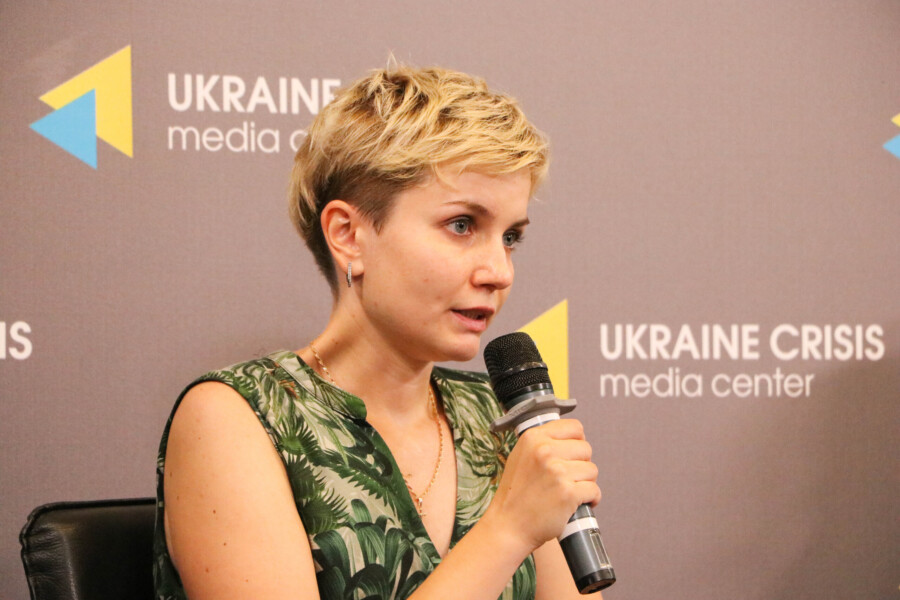 Anastasia Moskvychova
Anastasia MoskvychovaAttempts to destroy or damage activists’ property became the most frequent type of persecution in the first half of 2021: human rights advocates recorded 14 such incidents. In addition, activists were often intimidated (10 cases) and attacked (8 cases).
For instance, Valeriy Kharchuk, an activist from Luhansk Region and the leader of the Anti-Corruption Regional Front, had his cars damaged several times this year. At night on April 5, unidentified individuals set his car on fire, parked near the activist’s workplace. According to Kharchuk, before the incident, Anti-Corruption Front activists investigated possible corruption schemes at the city hospital and Teplocommunenergo, as well as non-transparent bidding in housing and utilities.
Two weeks before the arson, on March 15, unidentified individuals threw acid at another of his cars. On June 1, unidentified individuals threw acid once again at two of Kharchuk’s cars, parked in the yard of his house. Kharchuk associates these cases with his activism and criticism of the local government.
“Practice has shown that under the conditions of financial control, local self-government bodies turn into a terrorist organization ready to take resolute action against activists. And if you monitor government purchases, challenge the local government’s illegitimate decisions, follow the system of bonuses and raises for officials, be prepared for aggression and persecution,” stated Valeriy Kharchuk.
Several other cases of pressure in the past three months happened to the Odesa activist Vitaliy Ustymenko. In April, a discreditation campaign was launched against him. Before this, there was a protest in Odesa against the construction in Prymorsky Boulevard, carried out by Varda Plus LLC; the activist opposed this development. Ustymenko stated that the developer obtained the permits illegally and was currently ignoring a court decision to arrest the land plot.
After the protest, he was accused of supporting the interests of the developer Kadorr Group, for whom this development was allegedly disadvantageous. Ustymenko himself says that he was once a victim of an attack when he opposed the construction of one of Kadorr Group’s sites.
In addition, in June, the police tried to hand a misdemeanor report to Ustymenko due to his participation in a protest against the destruction of the historical Marazli Dacha: the activist allegedly offended the developer. Ustymenko did not sign anything and considers the report to not be handed to him.
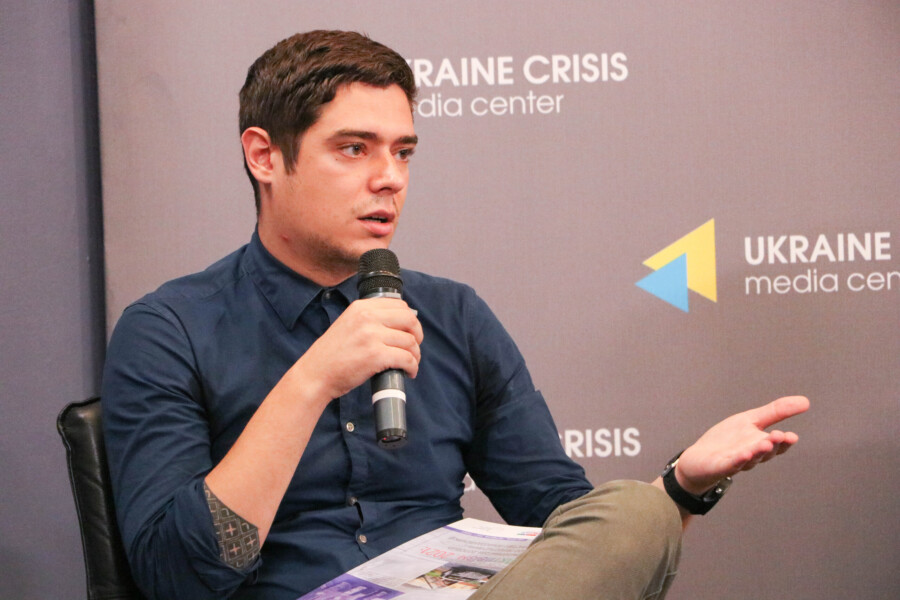 Vitaliy Ustymenko
Vitaliy Ustymenko“In 2021, we continue to observe the trend of new cases of persecution of the civil activists or organizations who have been persecuted before. Apparently, this is a consequence of the lack of proper investigation into previous cases of persecution by the law enforcement system. So we call on the police and on prosecutors’ offices to pay special attention to investigating the incidents listed in our report, since the victims are people who are systematically attacked in order to stop their activities by intimidation,” summarized Lyudmyla Yankina, ZMINA project coordinator.
The report is available in Ukrainian. Video of the presentation can be viewed here.
The project “Increasing the Role and Protection of Human Rights Defenders in Ukraine” is implemented by the ZMINA Human Rights Centre in partnership with the Netherlands Helsinki Committee with the financial support of the European Union. The project focuses on legal and operational protection and support for human rights defenders and anti-corruption activists in Ukraine, enhancement the positive role of human rights defenders in society and formation of links between them, increase in the number of effective investigations into attacks on human rights defenders and activists, and more. The project lasts from 2019 to 2022.
If you have found a spelling error, please, notify us by selecting that text and pressing Ctrl+Enter.

